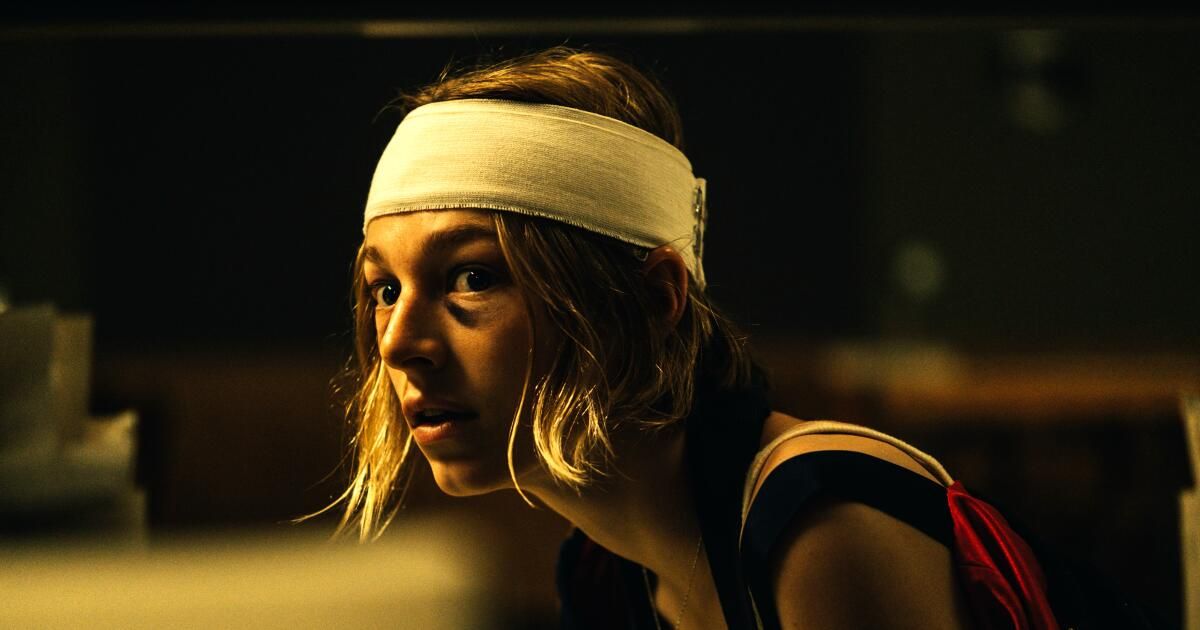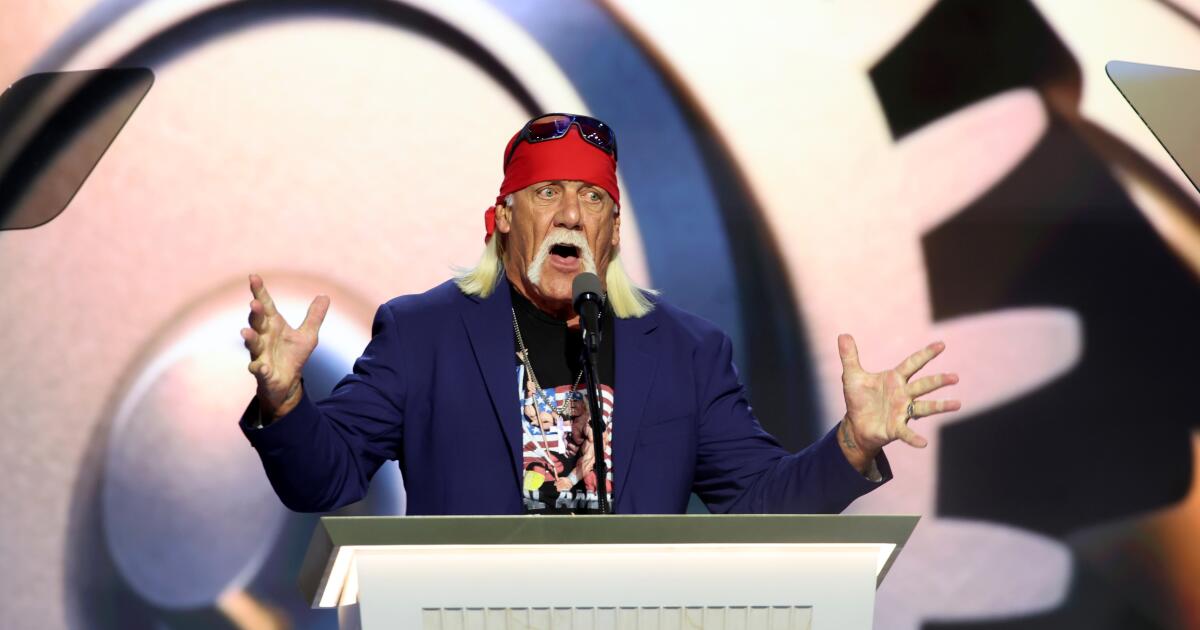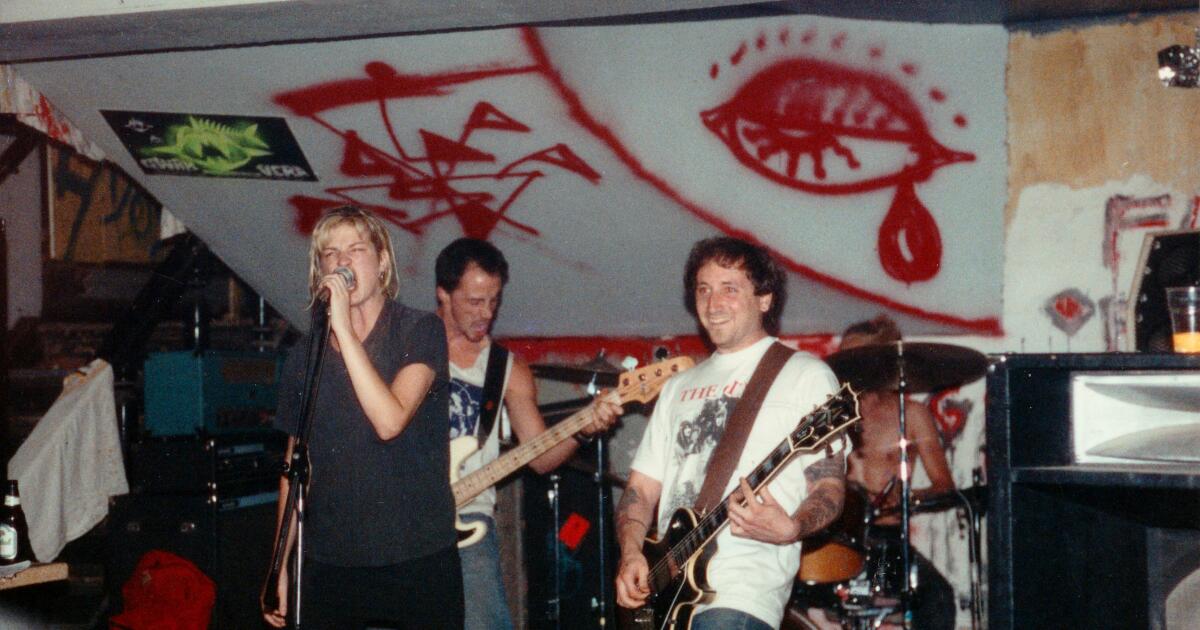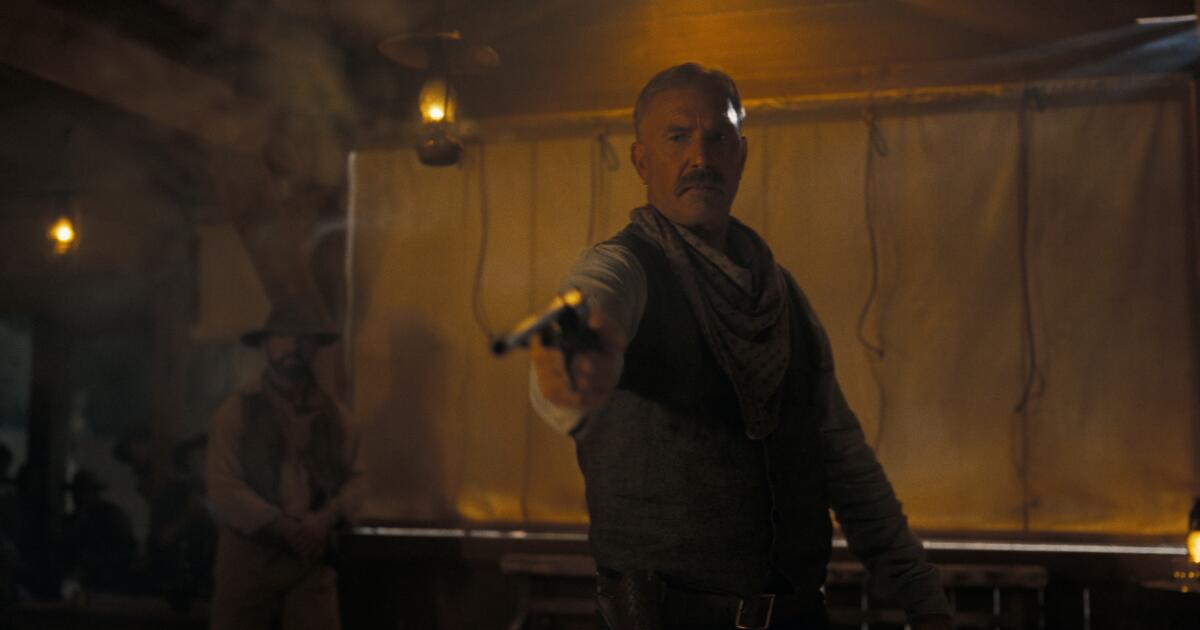Many of the needle drops scattered throughout Tilman Singer’s horror film “Cuckoo,” which opened in theaters Friday, were written into the first draft of the script in 2019.
But the film's musical touchstone, a soft rock number that “Euphoria” breakout star Hunter Schafer sings onscreen, didn't come together until years later.
Schafer stars in Singer’s second feature as Gretchen, an angsty teenager who, following the death of her mother, leaves the U.S. to live with her father Luis (Marton Csokas), stepmother Beth (Jessica Henwick) and eight-year-old half-sister Alma (Mila Lieu) at a resort in the German Alps. After taking a job as a receptionist at a nearby hostel, Gretchen has increasingly strange encounters with the resort’s guests and quirky owner Herr König (Dan Stevens), suggesting that her quaint new home is not the paradise it is cracked up to be.
In the psychedelic horror trip that is “Cuckoo,” the music serves as an emotional and narrative guide, telling “a different story” than the surface plot, Singer said.
The film’s first moment of true terror unfolds when Gretchen plays bass in her bedroom. Wearing noise-cancelling headphones, she sings and strums a grunge song while Alma watches from outside.
The lengthy scene alternates between sonic viewpoints, building tension, until Gretchen finally notices her younger sister as she suffers the first of several seizures, which we later discover are reactions to the evil siren song of the cuckoo people, or what Singer calls “homo cuculidae,” who reside at Alpschatten Resort.
Singer's script was precise with this scene, which evokes the sisters' estrangement and forges their central conflict. But not everything went as planned.
Singer originally envisioned Gretchen playing a song by alternative rock band Jesus and Mary Chain. The band’s style suited him perfectly: “They’re very loud, but they have a carefree attitude, like shoegaze.” But when Neon found the licensing fee too high, he started from scratch.
“I look[ed] “I went back to my list and on it was either Suicide or Velvet Underground. I thought, ‘Okay, I’m not buying any of these,’” Singer said. That’s when he called Simon Waskow.
Waskow, a high school friend and longtime creative partner of Singer’s, had already scored the director’s first feature, “Luz” (2018), as well as a handful of short films they collaborated on in the early- and mid-2010s. He wrote “Gretchen’s Song” in a single afternoon.
“It all came together very quickly,” said the Cologne-based composer. “Of all the music I did for the film, that song was the easiest part.”
At Singer's spontaneous suggestion, Waskow adapted a “spaghetti western tune” from his old short film “Dear Mr. Vandekurt” — and a Jesus and Mary Chain beat — onto the bass-heavy track.
Schafer was so in tune with the song, Waskow said, that after she recorded her vocals, he re-recorded his to match hers.
“Hunter's performance, which was really sweet and charming and very spontaneous, just basically fell into place,” he said. Schafer learned to play bass for the film, but in the scene it sounds like he's been playing for years.
“That's the talent I like so much about her: how she can do something very delicate and emotional, [and] “Really deeply emotional in a relaxed, but not casual, way,” Singer said.
A snippet of “Gretchen’s Song” also became the teenage protagonist’s theme, which recurs throughout “Cuckoo,” especially when Gretchen and Alma reconcile at the end of the film.
“It’s a kind of melancholic melody that then turns into something hopeful,” Singer said, characterizing Gretchen and “reflecting the whole intention of the film.”
Other songs on the Cuckoo soundtrack similarly reflect their corresponding scenes. Gerhard Trede’s jazz-blues embodies the old-fashioned atmosphere of the resort lobby, and Martin Dupont’s French New Wave expresses the romantic tension between Gretchen and a charming resort guest.
Like costumes or sets, music is a world-building tactic in “Cuckoo,” Singer said.
But more than that, she continued, music is Gretchen’s “philosophy” as she mourns her mother and her most trusted “weapon” against the cuckoo people, whose high-pitched call is noticeably juxtaposed to Gretchen’s low-pitched theme.
“This is the super-classic hero’s journey,” Waskow said: “Gretchen faces danger and then becomes, so to speak, a musician.”
“She was always supposed to defend herself with music,” Singer said.












